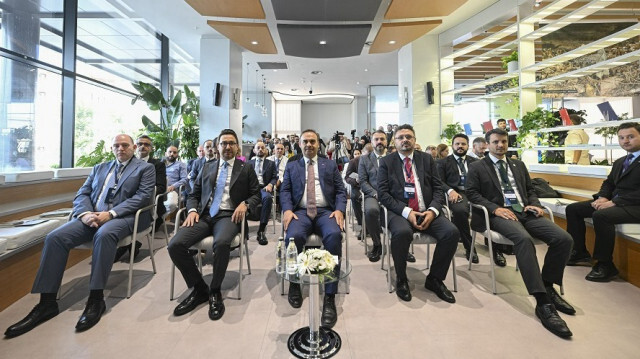
Discussion focuses on needed balance between leveraging AI's capabilities and maintaining journalistic integrity
At a conference on "Navigating AI and Media" held in Istanbul on Wednesday, media leaders highlighted the profound impact of AI on journalism, emphasizing both its potential and challenges.
Anadolu's Deputy General Manager and Editor-in-Chief Yusuf Ozhan opened the panel, titled AI's Role in Shaping Media's Perspective, addressing the growing influence of AI on media.
"AI offers incredible tools for personalization and efficiency, but it also presents challenges, especially concerning ethics, bias, and integrity of journalism," Ozhan said during his speech.
He also revealed that while preparing for the discussion, he relied on AI tools, including ChatGPT, to shape the questions to panelists, noting: "It's a good test for ChatGPT as well, whether it is a good moderator or not."
Ozhan emphasized the importance of harnessing the potential of AI, while also being mindful of its limitations.
"As we know, AI is increasingly influencing the way media is produced, distributed, and consumed. But while AI can enhance efficiency, it is crucial to safeguard the core values of journalism — truth, accuracy, and integrity," he stressed.
He also pointed out the risks of AI-driven personalization, leading to information bubbles.
"Personalization can greatly enhance user experience, but it raises questions about echo chambers and the potential for entrenched biases."
Later in the discussion, Aimilios Perdikaris, president of Greek news agency AMNA, emphasized the transformative nature of AI in media production and consumption, highlighting both opportunities and challenges.
"The landscape is changing constantly, and that's why we have to work on the models. We do not expect that AI would replace us," Perdikaris remarked, stressing the importance of adapting to new technologies while maintaining human oversight.
Kiril Valchev, president of the BTA news agency of Bulgaria, emphasized the necessity of training staff to effectively utilize AI.
"Without people, artificial intelligence is nothing. That's why our first task is to develop our staff to learn how to use AI," he asserted.
Valchev also highlighted the challenges of implementing AI in non-English languages, noting the need for specialized AI tools tailored to specific linguistic and cultural contexts.
Rodolfo Cardarelli of Italy's ANSA news agency also expressed concern over AI's potential impact on media credibility, particularly in a rapidly digitizing landscape.
"The problem is not the technology, but the loss of values like credibility and reliability," Cardarelli warned, underscoring the risk of AI diminishing the trustworthiness of news organizations.
The panelists collectively acknowledged that while AI offers significant advancements, its integration into media must be carefully managed to preserve journalistic integrity.
The discussion concluded with a call to balance AI's benefits with the need for unbiased and diverse reporting, recognizing the enduring value of human oversight in maintaining the credibility and reliability of the news.
Anadolu, which holds the presidency of ABNA-SE for 2024, hosted the conference at the 32nd Ablyasa General Assembly and Conference in Istanbul.
"Navigating AI and Media" was hosted by Anadolu and organized by the Association of the Balkan News Agencies – Southeast Europe (ABNA-SE) delegation members with the attendance of Türkiye's Industry and Technology Minister Mehmet Fatih Kacir, President and CEO of Anadolu Serdar Karagoz, and Secretary-General of ABNA-SE Kiril Valchev.

